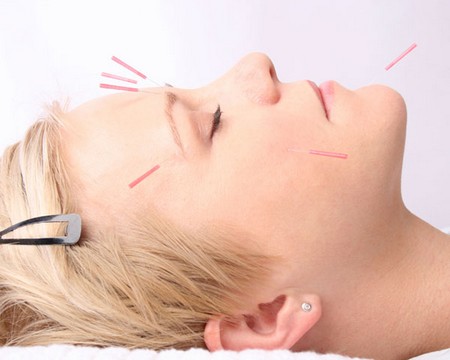Acupuncture, a traditional Chinese technique, restores the energy flow in the body, boosts the immune system and makes people feel relaxed and healthy. Acupuncture relives pain and can treat medical conditions such as high blood pressure, asthma, pre-menstrual syndrome and more. Acupuncturists also treat addictions, such as smoking or drinking. Acupuncture can also prove good for cosmetic problems such as wrinkles or hair loss. Acupuncturists insert thin needles in various parts of the patient’s body in order to stimulate circulation. Acupuncturists believe hair loss results from a loss of energy in the head area, so they restore that energy flow.
- Find a licensed acupuncturist in your area. Although acupuncturists are generally not physicians, they do need to have training and hold a certificate or license to practice acupuncture. You can find a list of acupuncturists on Acufinder Web (http://www.acufinder.com/) or on the American Academy of Medical Acupuncture’s website (http://www.medicalacupuncture.org). Your doctor can also recommend a good acupuncturist.
- Read about how acupuncture works and discuss the method with your acupuncturist. Make sure you feel comfortable with the treatment and ask as many questions as you need. Acupuncture is not a painful procedure, although it involves needles. The needles are very thin, and you will feel a slight pinch when the acupuncturist inserts them in your skin. It shouldn’t prove more painful than a mosquito sting. You should also feel no pain or discomfort during the time you spend on the massage table, with the needles inserted. On the contrary, you should feel relaxed and perhaps even sleepy.
- Discuss with your acupuncturist your hair loss problems. Make a list of hair products you use, explain how much hair you lose, and mention when the problem first occurred. The acupuncturist will ask you about your lifestyle, eating and sleeping habits, your overall energy level and other symptoms you might experience. Women might also answer questions about menstruation. Be honest with the acupuncturist and treat him as any other doctor there to help you with your problem.
- The acupuncturist will take your pulse and examine your tongue. Even if some of the methods might seem odd to you, trust you therapist and remember that you’re trying out an alternative medicine technique that has developed over centuries.
- The acupuncturist will probably insert needles in your wrist, the back of your neck, your lower back and in between your shoulder blades. The needles are thin and sterile, and the depth of insertion depends on the age, gender and weight of the patient.
- Follow the treatment plan the acupuncturist suggests. You will need to go to acupuncture once or twice a week over several weeks or months, depending on the response of your body and the severity of your hair loss problem.
- Don’t do acupuncture yourself if you don’t have acupuncture training. Massage your scalp in between acupuncture sessions to restore blood flow and stimulate the area.
Aside from acupuncture there are lots of ways to prevent hair loss. If you are interested to try a different treatment other than acupuncture, try to consider a Therapeutic hair transplant. You can also check out sites like https://hair.goldskincare.com/neograft-hair-restoration/ for ways on how to restore your thinning hair. Do not allow your hair loss to continue untreated any longer!
Further Readings:
